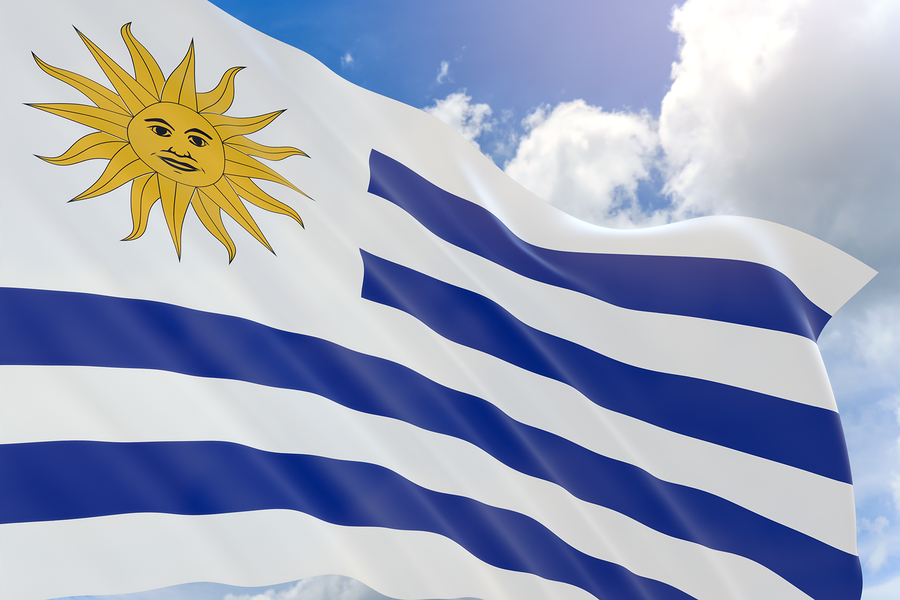(Editor’s Note: While Uruguay isn’t the only country where marijuana is legal it is the only country that doesn’t have certain intricacies or restrictions within its legality. It is fully legal. No restrictions.)
The cultivation and use of cannabis was legalized in Uruguay in 2014. And in July, Uruguay became the first country in the world where it’s legal to sell across the entire territory, thanks in part to the unjust arrest and subsequent release of a now well-known author.
Alicia Castilla was watering the plants in her garden on a quiet Sunday afternoon when a team of 14 officers stormed through her gate and arrested the mild-mannered, 66-year-old intellectual. They seized everything including the 29 cannabis plants she was watering along with 24g of marijuana found in her possession. She was taken to a police station where she spent the night handcuffed to a bench:
“They treated me like the female version of Pablo Escobar,” Castilla said.
Castilla is a peace-loving, gray-haired author whose book ‘Cultura Cannabis’ had become an unexpected bestseller. Like many Argentinian of the same age, she had recently retired to nearby Uruguay. The plants were for her personal use:
“I make a living writing about marijuana, not selling it,” she added.
Castilla’s arrest in 2011 sent a shockwave through Uruguay. The cultivation and sale of cannabis was forbidden and the author was looking at between 2 and 10 years behind bars. Castilla became a national celebrity. Her fellow inmates nicknamed her “the reefer grandmother”, a moniker quickly picked up by the press. Thousands marched to demand her release.
RELATED ARTICLE:
“The media coverage was crazy. Legislators started bringing legal marijuana draft bills for me to look at in prison,” Castilla, now 72, recalls.
She was released after serving three-months of her incarceration. The case was dismissed by Uruguay’s supreme court last year. The cultivation of cannabis was legalized in 2014. In July Uruguay will allow the sale of cannabis across the entirety of the country.
 Alicia Castilla and her husband Daniel Vidart.
Alicia Castilla and her husband Daniel Vidart.
“It’s important for Uruguay to advance towards a logical regulation of recreational marijuana,” says Eduardo Blasina, director of the recently inaugurated Cannabis Museum located in the old Palermo neighborhood of Montevideo.
“The law gives consumers access to certified, unadulterated marijuana,” says Blasina. “South America’s war against drugs has been absurd, with catastrophic results no matter which indicators you consider, including consumption. If Uruguay’s experience turns out positive, it will be easier for other countries including Colombia or Mexico, mired in huge problems with powerful narcos, to find a better solution than the disastrous one implemented so far.”
RELATED ARTICLE:
Not everyone is pleased with how legal marijuana is being implemented in Uruguay.
“I’m happy because now you can plant without going to prison,” says Juan Manuel Varela, a 28 year old and manager of MDAR, a cannabis clubs set up under the new legislation. “But like many things in Uruguay, the new law is a good idea that is being applied badly.”
Home growers are required to register with the government for a permit allowing them a maximum of six plants. Clubs including Varela’s require permits for and a maximum of 45 members. The members can withdraw just 40g per month from the club’s crop.
When the law goes into full effect in July, legal marijuana will be available strictly at pharmacies for only $1.30 per gram. (compared with $3 on the street) Consumers must register with the government and will be required to identify themselves via digital thumb scan to withdraw the weekly maximum of 10g. Pharmacists will not be given the name of the client associated with each thumb scan. Only the amount of ‘grams available’ from each client’s quota will be shown on the pharmacy’s screen.
RELATED ARTICLE:
Furthermore, only seven members of the government will have access to the entire registry, and three of them will need to be present simultaneously to retrieve names:
“It’s like a police file they’re building of planters and consumers,” says Daniel Vidart, Castilla’s husband.

Daniel is a personal friend of Uruguay’s former president, José “Pepe” Mujica, who introduced a series of liberal reforms during his 2010-2015 term in office.
Vidart is highly critical of his friend’s marijuana law.
“This law actually stigmatizes marijuana more than it legalizes it,” says Vidart, holding his wife’s hand. “Why should there be a registry of marijuana consumers and not one of alcohol consumers? Alcohol is a much deadlier drug. This law continues considering marijuana smokers are dangerous they need to be counted by the government. A registry is more or less safe as long as you have a democratic government, but it could become a weapon against consumers should the political mood change.”
So far about 3,500 people of Uruguay’s 3.4 million have signed up to buy at pharmacies. In addition, since 2014 6,700 have signed up as home growers and 57 cannabis clubs have been set up, according to the government’s Cannabis Regulation and Control Institute.
“Only 30 of the country’s 1,000 pharmacies have signed up to sell marijuana so far,” says Alejandro Antalich, vice-president of the Uruguayan pharmacies’ association.
“Our society can be conservative, resistant to change, so there is still uncertainty and many pharmacists are waiting to see how the system works before signing up to sell. There is also fear of reprisals against pharmacies from corner drug traffickers upset at losing their clients.”
Castilla also has mixed feelings about the new law:
“I would like to see full freedom to plant in your own home,” she says. When asked if she has registered she voraciously replies:
“No, I haven’t, and by the way, I am still growing at home. I don’t think they’d dare come after me again,” says Castilla with a twinkle in her eye.
For more information on Uruguay’s cannabis reform, click the video below:
*Article originally appeared at Minds.












